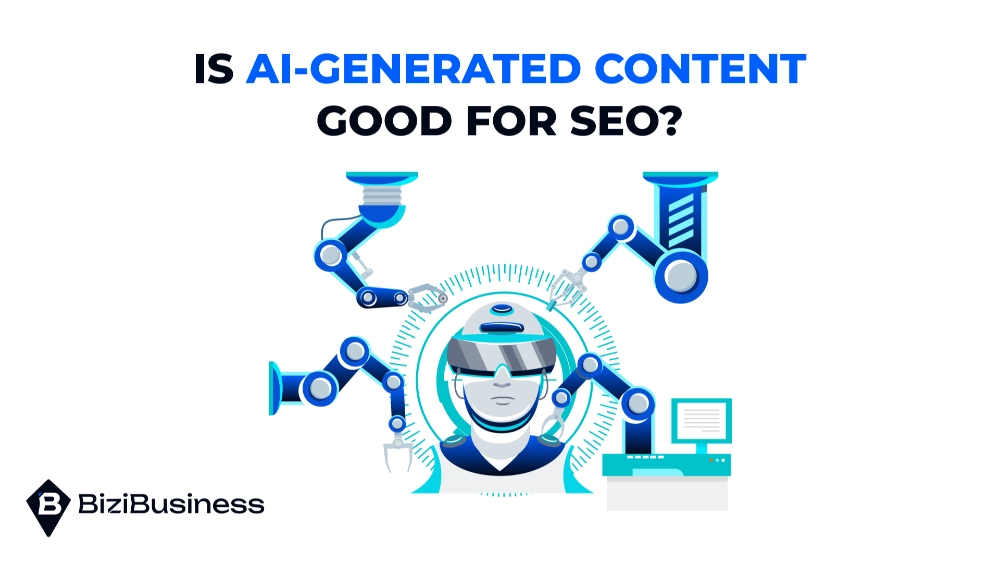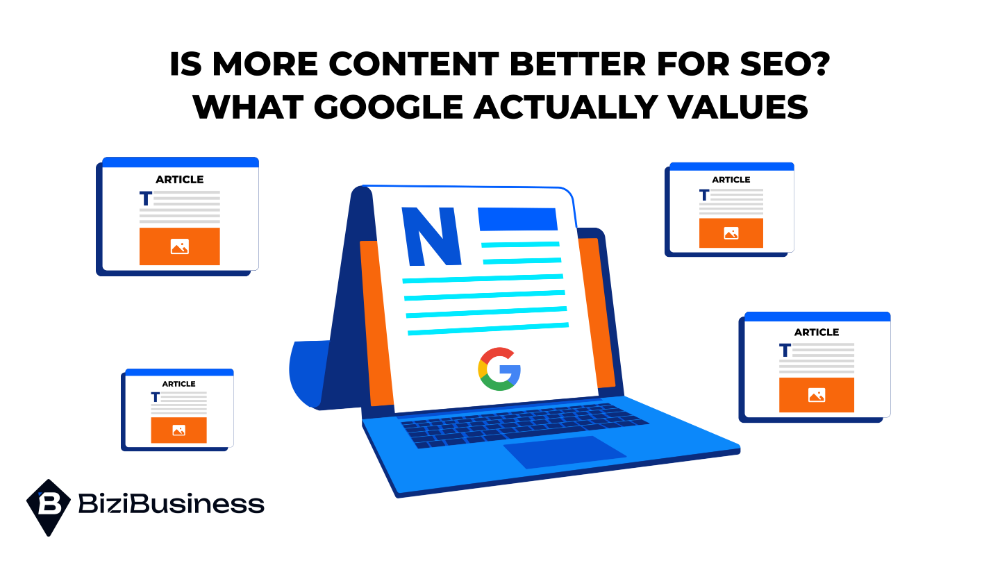Contents
Wondering is AI-generated content good for SEO? Discover how AI content impacts your rankings, Google’s stance, and best practices.
Is AI-Generated Content Good for SEO? That’s the question every growth-focused business is asking as AI writing tools explode across marketing teams. It’s fast, scalable, and undeniably efficient—but can it rank? Or worse, can it hurt your visibility? With Google’s algorithm prioritizing helpful, original content, relying solely on AI could backfire. This article breaks down what actually matters: how search engines evaluate AI content, what the risks are, and how to strike the right balance.
What AI-Generated Content Is (and Isn’t)
AI-generated content in 2025 isn’t just robotic text stitched together from the web—it’s highly fluent, tonally adaptive, and often indistinguishable from something a human marketer might write. Tools like ChatGPT, Jasper, and Copy.ai now create everything from SEO-optimized blog posts and ad headlines to email funnels and entire website copy, often in seconds.
But let’s get one thing straight: AI content is not strategic. It doesn’t understand your market, your client pain points, or your unique selling proposition. It doesn’t know which offers convert or which headlines resonate. It simply predicts what might sound right based on massive language models.
That’s why most high-performing marketers use AI as a support tool—not a replacement. Think blog post outlines, meta descriptions, alt text, FAQs, or even content repurposing. The grunt work? AI can do it. But the insight, tone, and strategic layering that drive SEO results? That still comes from you, who blends smart automation with high-impact marketing.
AI gives you speed. But human strategy is what gives your content traction.
The Pros of AI Content for SEO
Let’s start with the obvious win: scalability. AI-generated content allows marketing teams—especially smaller ones—to produce SEO content at a pace that was once reserved for enterprise-level budgets. Whether you need 10 blog drafts, a dozen meta descriptions, or refreshed service pages, tools like ChatGPT can handle the heavy lifting in seconds.
For SMBs with lean resources, this means leveling the SEO playing field. You no longer need a massive editorial team to stay competitive in the SERPs. When prompted well, AI outputs can be laser-focused for SEO—suggesting keywords, structuring headers, and even mimicking your brand voice.
It’s also incredibly useful for content repurposing. You can turn a webinar into an article, a blog into a newsletter, or a whitepaper into social posts—all with a few AI-assisted tweaks. And let’s not forget the research side: AI tools quickly summarize topics, generate keyword clusters, and speed up the ideation process.
But efficiency only works if paired with direction. That’s where human oversight matters—refining AI drafts into high-performing assets that actually connect, convert, and comply with Google’s E-E-A-T standards.
Want to learn how to prompt smarter? Check out our guide to writing SEO content with ChatGPT for practical tips that elevate AI outputs from average to exceptional.
The Cons of AI Content for SEO
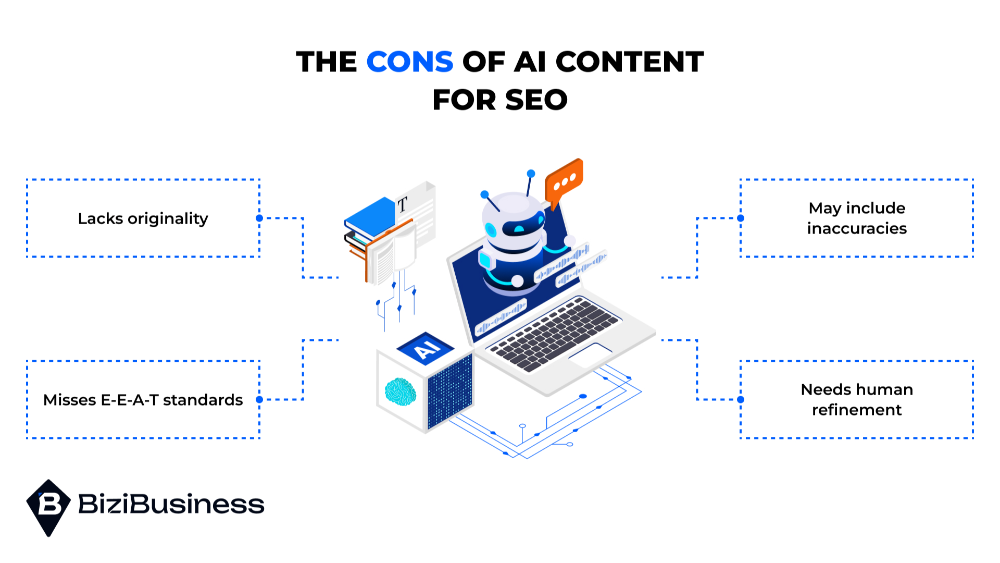
As powerful as AI tools are, they come with trade-offs—and some can quietly undercut your SEO performance if you’re not careful.
First, there’s the issue of repetition and generic tone. Most AI models draw from similar data sets, which means outputs can start to sound eerily alike. If every brand is using AI to say the same thing in the same way, you lose what search engines reward most: originality and authority.
This leads to a valid concern many marketers are now asking: is AI written content bad for SEO? The short answer—it can be, if you publish it without review or refinement. AI can summarize what’s already out there, but it can’t generate firsthand experience, industry-specific nuance, or case-driven perspective. Google’s algorithm heavily favors content that demonstrates expertise, experience, authority, and trust (E-E-A-T). AI, by design, struggles to check those boxes on its own.
Accuracy is another pitfall. While tools like ChatGPT are impressive, they don’t fact-check in real time. You might end up with outdated stats, misquoted sources, or obsolete tactics—especially in fast-moving sectors like digital marketing or healthcare.
So, is AI generated content bad for SEO? Not inherently. But left unedited or overly generic, it risks harming credibility, rankings, and user trust. That’s why at BiziBusiness, we always bring human strategy into the final mile—so your content ranks and resonates.
What Google Actually Says About AI Content
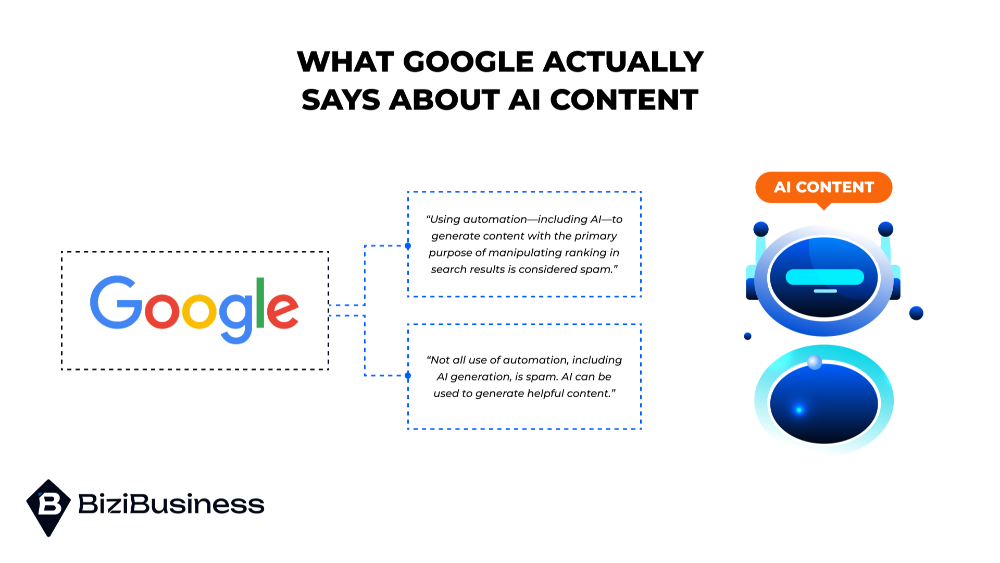
Google’s position on AI-generated content is now clearly stated: quality matters more than authorship. Whether a blog post is written by a human or machine doesn’t matter—what matters is whether it’s genuinely useful, original, and created for people, not just search engines.
According to Google’s official guidance:
“Using automation—including AI—to generate content with the primary purpose of manipulating ranking in search results is considered spam.”
But:
“Not all use of automation, including AI generation, is spam. AI can be used to generate helpful content.”
This distinction is at the heart of Google’s Helpful Content System, which prioritizes content that demonstrates Experience, Expertise, Authoritativeness, and Trustworthiness (E-E-A-T). If content is thin, overly generic, or lacks human insight, it risks being deprioritized—even if it technically checks SEO boxes.
So, AI alone won’t trigger penalties—but poorly executed AI content will. SEO experts like Lily Ray and Marie Haynes have consistently emphasized the importance of editorial oversight, citing that human expertise layered on top of AI output is what makes the difference.
How to Make AI Content Work for SEO
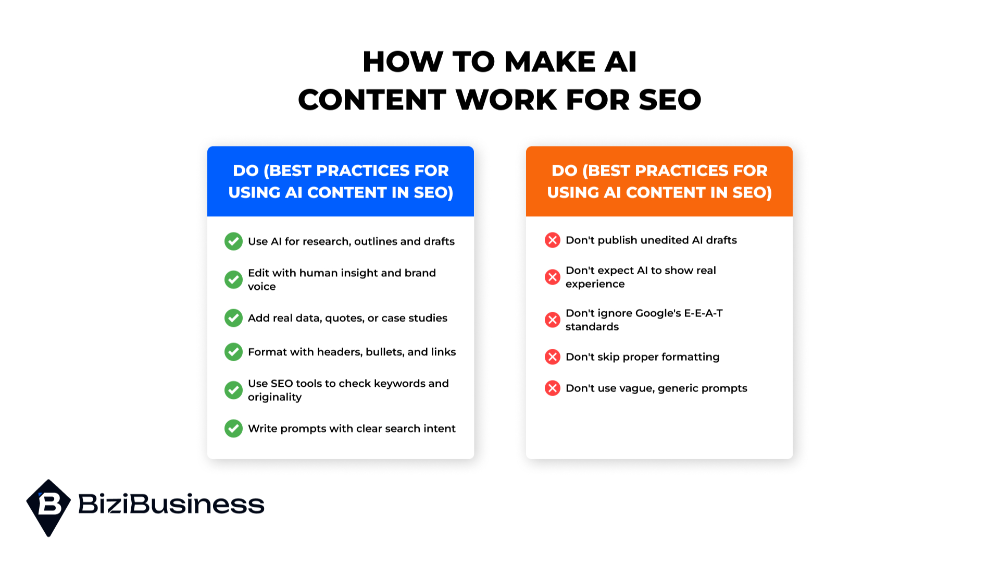
AI-generated content can rank—and even outperform human-written content—when it’s used the right way. The secret? Pair the machine’s speed with human insight and strategic SEO refinement.
Start by using AI for what it’s best at: research, structure, and first drafts. Tools like ChatGPT, Jasper, or Copy.ai are incredibly efficient for ideation and fast content output. But don’t stop there. A raw AI draft isn’t ready to rank—or convert. To truly work for SEO, it needs human editing that adds depth, voice, and precision.
Inject original data, expert opinion, or lived experience wherever possible. Google rewards content that shows firsthand knowledge—so quoting your own client results, offering insights from internal case studies, or explaining what actually worked in your business makes a major difference.
Formatting also matters. Use clear headers, bullet points, and internal links. Tools like Surfer SEO and Clearscope help ensure your content aligns with top-performing keyword patterns, while Originality.ai can validate that your final draft is unique and aligned with Google’s authenticity standards.
Pro Tip: Always write prompts with search intent in mind. If your audience is looking for actionable how-tos, don’t ask AI for fluffy overviews. Get specific. For example: “Write a blog post outline for dentists on how to reduce no-show rates with Google Ads.”
Real Use Cases: When to Use AI for SEO Content (150–200 words)
Let’s be real—AI tools like ChatGPT can be a game-changer when used with intent. If you’re asking, “is AI generated content good for SEO?”, the answer depends entirely on how you’re using it.
AI shines when it comes to idea generation, content outlines, FAQs, summaries, and even repurposing old blogs into new formats. These tasks are time-consuming but not high-risk—making them perfect for automation. It’s also a smart way to support lean content teams trying to stay consistent in search visibility.
But when it comes to thought leadership, industry trend analysis, or content that speaks directly to your audience’s pain points? That’s where AI still falls short. Tools like ChatGPT can’t replace your expertise, your voice, or your real-world experience.
Quick checklist:
Use AI for:
- Brainstorming ideas
- Structuring articles
- Summarizing existing content
- Drafting FAQs
Avoid using AI alone for:
- Original insights
- Data-backed analysis
- Brand storytelling
- Final publishing without review
Final Thoughts
So, is AI generated content good for SEO? It absolutely can be—if you use it the right way. The real issue isn’t the technology; it’s how it’s applied. AI isn’t a shortcut to game search engines, it’s a tool to support smarter, more strategic content creation. Misuse it, and you risk publishing generic, low-value pages that stall your rankings. Use it wisely, and you unlock scale, consistency, and stronger visibility.
At BiziBusiness, we help you walk that line with precision. Our SEO service combine smart AI workflows with expert-led strategy—so you don’t just produce more content, you publish content that ranks, converts, and builds trust.
